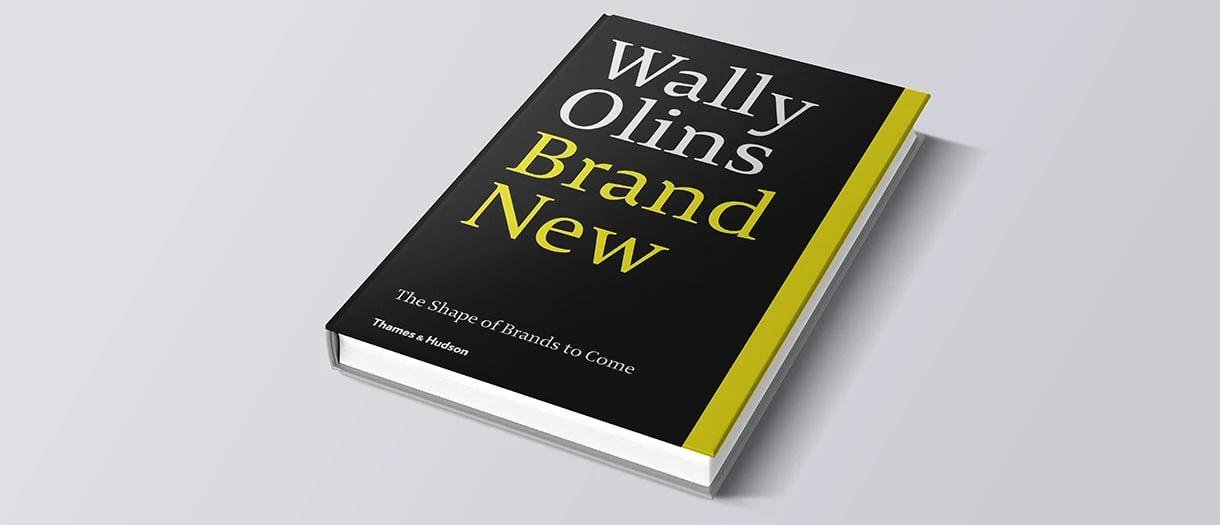Book review: Brand New

Brand master Wally Olins offers his final advice, in a book that should see us well into the future.
by Wally Olins (Thames & Hudson)
What is a brand? It’s not animal, vegetable or mineral. It’s not a company, exactly. It’s not a person, though Wally Olins’ final book can make you feel that it is, in some ways, human: capable of brilliance but more often resigned to a sort of knuckle-dragging incompetence.
Olins, the late, great master of the art of branding (Adweek called him “the leading apologist for brands and branding as the driving force of the modern world”) has much to say about his object in Brand New, published just before the author passed away last year at the age of 83. As he puts it in his introduction: “I am writing about it all now, because I won’t be here to see it and listen to people telling me how wrong I was.”
Wrong? Lulled by Olins’ sage, prophetic tone, it seems blasphemous to doubt his predictions. His thesis, in a nutshell, is that brands must change to survive and thrive in a world that is also changing. “Authenticity” is the watchword here. Each chapter focuses on a different challenge posed by this brave new market, or at least a rising trend: increased scrutiny of corporations, the surge of entrepreneurs, the future of brands from non-Western countries, the rise of nation branding. Throughout, he proffers the wisdom (or even common sense) that so often eludes the stewards of the brands that have invaded our landscapes, lives and desires.
He holds up BP as the classic example of how wrong things can go when the corporation fails to grasp, well, much of anything—from the importance of integrating corporate social responsibility (CSR) into its ethos (not just sloganeering) to the public scrutiny it could and would be subjected to. An obvious case study, perhaps, but Olins deftly exposes every facet of the failure in just a few absorbing pages.
Olins writes, always, under the wide arc of history—how the West’s patterns of consumption will soon echo its 18th-century love affair with the Orient; how a medieval tithe system could help corporations out of the quagmire of CSR; how Atatürk, in reinventing Turkey in the 1920s, spearheaded the “most complete rebranding operation any nation has ever gone through.”
Indeed, his view is the long one (possibly owing as much to his age and his 50 years in the business as to the fact that he read history at Oxford). He gives equal weight to the past and to the future, about which he is uncommonly perceptive. But Olins is not, or not only, a present-day oracle. He is also a consumer, and at times he sounds like your standard-issue cantankerous one:
“Another example is insurance. There’s the large blank wall between the sales people, who are heavily incentivized to sell products to customers even when those products are inappropriate, and the claims people who assume that all claimants (that is, customers, of course) are liars… So if your daughter has an accident while vacationing in Thailand, you have to prove she didn’t do it on purpose and wait for a few months before they graciously decide to pay for her to come home… or maybe not.”
It’s this posture—between insider and outsider—that lends Olins’ words their weight. He knows everything worth knowing about brands, and has worked for some of the biggest, but he still feels how we feel when we’re stuck in long lines at the supermarket or are sent down the black hole of the automated customer-service response. And the finger-wagging he occasionally delivers to those responsible is very gratifying (for example, to Vodafone: “You have no empathy. It’s all by the book. Inhuman, unhelpful and absurdly bureaucratic”).
When Olins branches into a discussion of place branding in the book’s later chapters, the sense of a brand’s importance really takes shape. And his personal beliefs about branding, delivered in an afterword that reads like deathbed instructions, drive it home: “[Branding] is a fundamental manifestation of the human condition. It is about knowing who you are, having a sense of your own individuality and of where you belong, and showing it. Whether this relates to a person or a nation or a product, it makes no difference.”
There’s no doubt that the prescient Olins has left a yawning gap in the world of branding. His final book, at least, should see the rest of us well into the future.